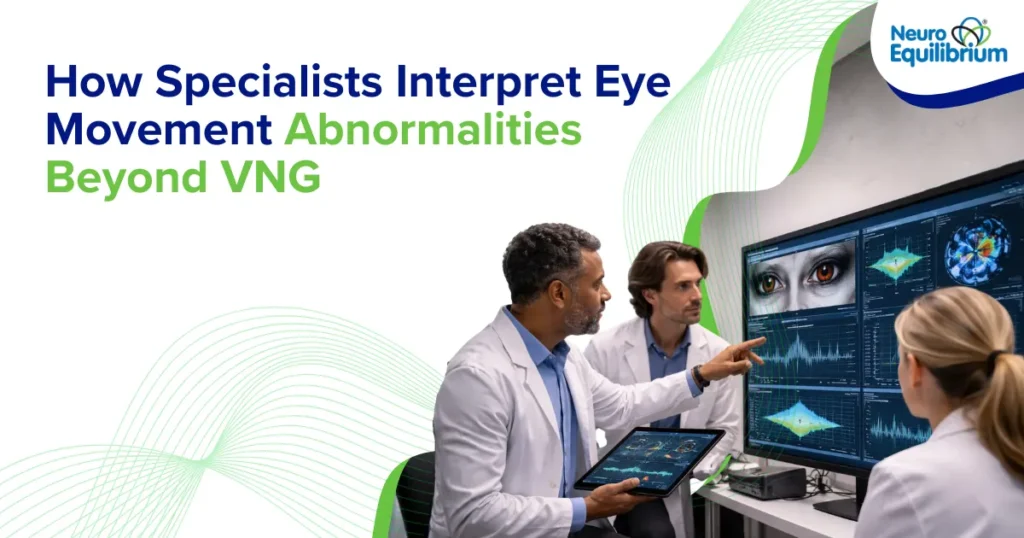It’s a pretty unsettling feeling, isn’t it? You’ve been dealing with neck pain for a while, and now, along with that ache, you’re also feeling dizzy or a bit wobbly. Perhaps you even feel like the room is spinning. Naturally, your mind jumps to questions: Are these two things connected? And should you be genuinely worried about what’s going on?
We want to support you in understanding the information, clearing up any confusion, and clearly explaining when dizziness and neck pain are genuinely connected. Our goal is to provide you with straightforward, helpful information so you can recognize when it’s time to seek further advice.
Know More About Neck Pain
Can Neck Pain Really Cause Dizziness?
The straightforward answer is yes, but only in certain specific situations can include: muscle strain, poor posture, and nerve compression
To explain this, it helps to understand how the body maintains balance. Your balance system works like a finely tuned orchestra, with key players being the brain, inner ear (which detects motion and position), and nerves in the neck that send sensory signals. When any part of this system is disrupted, it can throw off your sense of balance and lead to dizziness.
While most cases of dizziness originate from the inner ear or brain, neck problems can sometimes contribute. This condition is known as Cervicogenic Dizziness. It typically arises from issues in the cervical spine such as degenerative disc disease, muscle tension, or whiplash injury, which interfere with the proprioceptive signals from the neck to the brain. The result is a sense of unsteadiness, light-headedness, or imbalance, often triggered or worsened by specific head or neck movements.
Cervicogenic dizziness is considered a diagnosis of exclusion, meaning it’s diagnosed after ruling out more common causes like BPPV or vestibular migraine. That’s why it’s important to consult a vertigo specialist or neuro-otologist who can perform detailed testing and determine the true source of your symptoms.
Neck Pain and Dizziness in Brief
Neck-related dizziness, also called cervicogenic dizziness, is a condition where issues in the cervical spine interfere with balance control. Unlike true spinning vertigo, which is often caused by inner ear disorders, this type of dizziness usually presents as lightheadedness, unsteadiness, or a floating sensation.
Key Symptoms
Individuals experiencing dizziness in the neck also report:
- Rigid or sore neck that gets worse with motion.
- The heaviness or pressure on the bottom of the skull.
- Lightheadedness or imbalance, particularly when turning the head.
- Headaches that could travel along the neck towards the temples or behind the eyes.
Such symptoms may vary in severity and may become worse due to poor posture or sitting in one position.
Common Causes
A number of underlying factors can interfere with the neck in terms of balance and coordination:
- Cervical spondylosis (arthritis of the neck) – undergoes wear-and-tear alterations, which affect sensory feedback.
- Vertebral artery compression- impairs the supply of blood to the brain causing temporary dizziness or faint-like episodes.
- Whiplash or trauma – inflammation and strain of the muscles may cause irritation of the cervical nerves.
- Vestibular migraine – dizziness can be the most important symptom, and neck pain is the trigger.
The Big Misunderstanding: Cervical Spondylitis and Vertigo
You might have come across the term cervical spondylitis. What is it? Essentially, it’s a very common condition where the discs and joints in the neck spine show some wear and tear. This is a natural part of getting older for many people. Common signs you might notice include stiffness in your neck, ongoing pain, and not being able to move your neck quite as freely as before.
Here’s an important point to remember: specialists confirm that cervical spondylitis doesn’t cause true vertigo, the intense spinning feeling where you feel like you’re moving or that the room is moving. This often confuses many people because some sensations can seem similar. For example, you might feel a bit off-balance, unsteady, or even quite tired. These feelings can happen both with neck pain and other types of discomfort. It’s easy to mix them up, but medically, a neck condition like this isn’t the cause of the spinning sensation.
How Neck Issues Lead to Dizziness
There are large amounts of proprioceptive receptors in the cervical spine, which transmit position information to the brain. The disruption of these receptors by arthritis, injury, or compression causes the brain to receive conflicting information as compared to the information that the eyes and inner ears are reporting. The imbalance forms dizziness, motion sensitivity, or imbalance.
Examples include:
- Cervical spondylosis → impaired proprioception → imbalance and dizziness.
- Whiplash trauma – tightened muscles, swollen joints, – nerve damage – dizziness.
- Narrowing of the vertebral artery causes low oxygenation to the brain temporarily causing dizziness and unsteadiness.
- Vestibular migraine → primary dizziness with associated neck pain.
When Neck Pain Does Link to Dizziness: Vestibular Migraine
Now, there is a very specific situation where neck pain and dizziness are connected, and that’s with vestibular migraine. This isn’t your typical headache; in this case, dizziness is the main problem, often more noticeable than any head pain.
If someone experiences vestibular migraine, they might notice neck pain as part of the episode. Along with that, they could feel unsteady, confused about their surroundings, experience nausea, and become very sensitive to loud sounds or bright lights. That neck pain might even pop up just before or during a migraine attack. This can naturally lead to thinking the neck is causing the dizziness. However, the understanding is that the neck pain is more a symptom that accompanies the migraine, rather than being the direct cause of the dizziness itself. This is, in fact, a very common condition that is ignored. On the positive side, it can be controlled very well with proper diagnosis and treatment options.
Other Possible Causes of Dizziness with Neck Pain
Sometimes, dizziness and neck pain can show up together for reasons that might surprise you. One common cause is tension headaches. People with very tight neck muscles often feel pressure around their head, which can lead to a light-headed or dizzy sensation almost like feeling off-balance.
Another possible reason is trauma or whiplash. If you’ve had a neck injury, like from a car accident, the impact can sometimes affect parts of the brain that help with balance. This can cause temporary dizziness or a sense of light-headedness.
Poor posture is another big one. These days, many of us spend hours hunched over our laptops or phones. Whether it’s working from home or just slouching on the couch, bad posture can tighten the neck muscles and leave you feeling stiff, uncomfortable, or even dizzy.
Another important but less common condition is Vertebrobasilar Insufficiency (VBI). This occurs when blood flow to the back part of the brain (supplied by the vertebral and basilar arteries) is reduced. Since this region controls balance and coordination, limited blood flow can lead to dizziness, unsteadiness, blurred vision, or even fainting. VBI is more likely to occur in older adults or people with risk factors like high blood pressure or atherosclerosis and may be worsened by certain neck movements that compress these arteries.
If your dizziness feels more intense or comes with other neurological symptoms like double vision, slurred speech, or weakness, it’s important to seek medical attention right away.
When Should You See a Doctor?
While some dizziness might be temporary or mild, there are definitely some signs that tell you not to just wait it out. These are the red flags that should always be paid attention to:
- If dizziness gets steadily worse or lasts for days on end.
- If there are problems with vision, like blurriness, or if there is a constant feeling of sickness to the stomach.
- Any new numbness or tingling, or if there’s suddenly trouble with coordination.
Who should you talk to? It’s a good idea to see a specialist. That could be an ENT (an ear, nose, and throat doctor), a neurologist, or, even better, a clinic that specializes in balance disorders like Neuroequilibrium. Receiving the correct diagnosis is truly the most important step towards finding the right help and obtaining relief.
Why Specialized Vertigo Clinics Like NeuroEquilibrium Make a Difference
At NeuroEquilibrium, we understand that if you’re experiencing repetitive dizziness, a few painkillers or just taking rest isn’t going to solve the problem. Dizziness is often a complex issue that needs a precise and targeted approach.
NeuroEquilibrium is the world’s largest chain of clinics for patients suffering from vertigo, dizziness, and ear-related balance disorders, with over 220 centers across India dedicated to accurate diagnosis and effective treatment. We combine cutting-edge diagnostic tools like VNG (Videonystagmography) and a full suite of vestibular tests with the expertise of highly experienced neurologists and ENT specialists. This integrated approach allows us to precisely identify the root cause of your symptoms and provide targeted treatment for lasting relief.
Whether it’s a vestibular migraine, BPPV (Benign Paroxysmal Positional Vertigo), or another inner ear-related issue, we create personalized care plans to help you recover faster and find long-term relief. If dizziness is affecting your daily life, it makes sense to consult a team that focuses only on this specific area. We’re here to help you get back on your feet and feel like yourself again.
First-Line Care and Management
In the majority of cases, a conservative, non-invasive therapy is effective:
- Posture corrections – ergonomics and stretching to ease tension.
- Neck mobility exercises and strengthening – physical therapy guided.
- Vestibular rehabilitation – retrains balance systems when dizziness does not go away.
- Migraine-specific treatment – in patients in whom migraine is a major contributor.
The easiest everyday things like not spending much time on the screen without taking breaks, proper pillow support, and gentle neck stretches can contribute to a significant decrease in flare-ups.
When to Seek Medical Help
Despite the fact that the dizziness related to the neck is typically treatable, medical assessment is essential in case you are facing:
- A sensation of dizziness, having double vision, feeling weak, or numbness in the arms or legs.
- Recent or progressive headaches, particularly with imbalance.
- Frequent fainting or falling.
- Prolonged hearing loss, hearing ringing or ear congestion with neck pains.
All these symptoms can be signs of nerve or blood vessel disorders that should be addressed urgently. Additional testing and treatment can be directed by a neurologist, ENT specialist, or a spine specialist.
Conclusion
Neck pain and dizziness can sometimes occur together, but in most situations, dizziness is not directly caused by the neck itself. The good news is that many balance-related issues can be effectively managed and often resolved when they are diagnosed accurately and at the right time. Instead of trying to guess the cause or treat it on your own, it’s important to seek the opinion of a medical specialist. This is especially crucial to rule out conditions like vestibular migraines or inner ear disorders, which need specific treatments and a personalized approach to care.
While you wait to see a specialist, there are a few simple steps you can take to manage your symptoms. Start by keeping a symptom diary where you record when the dizziness happens, what might be triggering it, and how long it lasts. This can give your doctor valuable insights. Avoid making sudden movements, especially with your head and neck, and try to move more slowly. Pay attention to your basic well-being by staying hydrated, getting enough sleep, and managing stress. These everyday habits can make a big difference in supporting your balance and overall brain health.
Sources
- De Hertogh W., et al. (2005). “Dizziness and neck pain: a perspective on cervicogenic dizziness.” PMC. https://pmc.ncbi.nlm.nih.gov/articles/PMC11956690/ (PMC)
- Treleaven J. (2024). “The Role of the Cervical Spine in Dizziness.” (Cervical proprioception & dizziness review). (PubMed)
- “Cervical Vertigo” — symptoms, causes and treatments. MedicalNewsToday. https://www.medicalnewstoday.com/articles/326606 (Medical News Today)
- “Cervical Vertigo — Where Neck Problems Cause Dizziness.” Apollo Hospitals (Health Library). https://www.apollohospitals.com/diseases-and-conditions/cervical-vertigo (Apollo Hospitals)
- “Cervical Vertigo — Dizziness with Neck Pain.” Healthline. https://www.healthline.com/health/cervical-vertigo (Healthline)
- “Cervicogenic Dizziness: screening & overview.” Physio-pedia. https://www.physio-pedia.com/Cervicogenic_dizziness%3A_screening (Physiopedia)
FAQs
Can neck pain cause dizziness?
It can under some circumstances, such as vestibular migraine or tension headaches. The majority of dizziness is connected to brain or inner ear problems.
Does cervical spondylitis cause vertigo?
No, cervical spondylitis does not cause true vertigo, the sensation of spinning. However, it can lead to dizziness, lightheadedness, or a sense of unsteadiness in some individuals, which is often mistaken for vertigo.
What is vestibular migraine and how is it related?
Vestibular migraine causes dizziness with or without headache. Neck pain may occur but isn’t the caus, it might be a symptom of the vestibular migraine.
When should I see a doctor for dizziness and neck pain?
Vestibular migraine is a dizzying condition with or without a headache. Pain around the neck can be experienced but it is not the cause, it is a symptom of the vestibular migraine.
How can NeuroEquilibrium help with dizziness?
With the help of sophisticated diagnostics and the experience of specialists, NeuroEquilibrium helps establish the cause of dizziness and provides focused long-term relief.
















